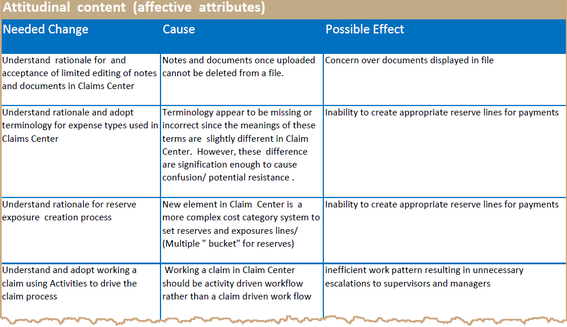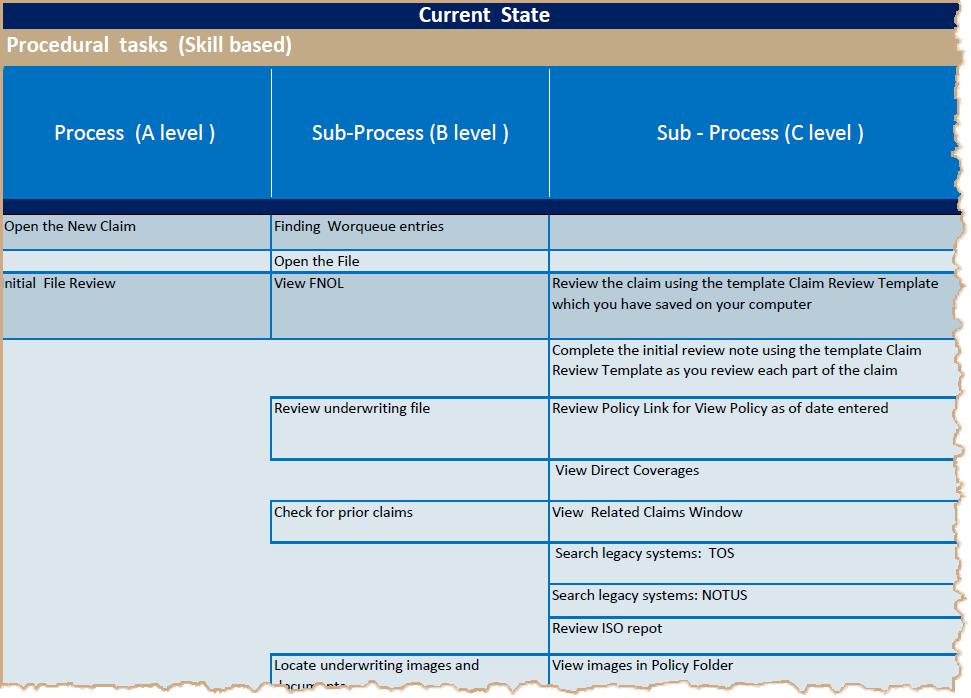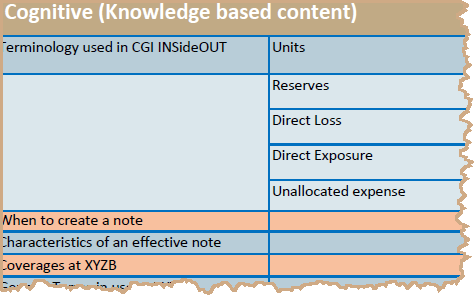Process Documentation
Understanding the current state of workflow and processes is important in the design of a training program. For smaller projects with a development time of six months or less this may be documented in a spreadsheet
format. The intent is to record the expected tasks and competencies as of the present moment and to sort these expectations based on knowledge types needed for future expected job duties.
This determines the extent and type of training experience that will be developed.
format. The intent is to record the expected tasks and competencies as of the present moment and to sort these expectations based on knowledge types needed for future expected job duties.
This determines the extent and type of training experience that will be developed.
Procedural Content
Procedural tasks are skill based competencies. These define how to perform a specific task or action. Since the same set of actions would be repeated to in the future to complete the same job duty, procedural tasks are often broken down into the stages or steps needed to complete a duty.
|
Cognitive Content
|
|
Example breakdown of cognitive content
|
Cognitive tasks are knowledge based competencies. Often a cognitive skill must be mastered to fully understand how to perform other tasks. Cognitive mastery provides the rational for decisions and judgments.
Since this content is conceptual, these skills often support procedural skills. For example. how to create a note in a computer system is a procedural task but the reasons for creating the note and the qualities of a good note are cognitive tasks. Cognitive skills are paired with related performances to verify mastery such as application exercises. |
Attitudinal Content
Attitudinal content encourages individual commitment to adopting a change in a past belief or in specific work patterns. Attitudinal content explains the need for the task, what created the need and any consequences of not mastering the required cognitive and procedural skills on performance.

Success in adoption of attitudinal tasks must be measured indirectly through the use of indirect behaviors.
|
|
Most of the images on this site are my own. When this is not the case, the image sources are noted on the Contact me page.
|




